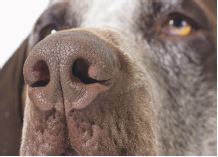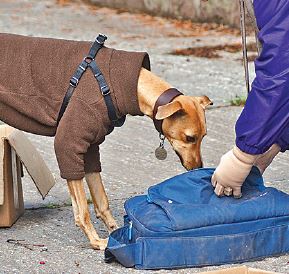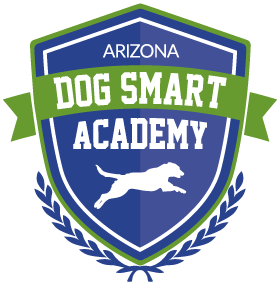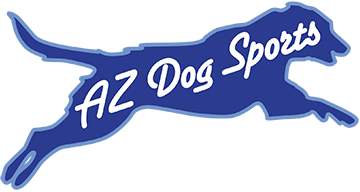 It’s no secret that dogs love sniffing:
It’s no secret that dogs love sniffing:
they’re so good at it, in fact, that they can be taught how to detect explosives in airports, bed bugs in hotels, or lost phones in their owner’s home.
It’s even become a sport dogs can compete in.
Scent work is the American Kennel Club’s newest sport. Designed to mimic the work of professional detection dogs, scent work training teaches dogs how to detect specific odors in different, predetermined area. Any dog, regardless of breed, can participate.
“The sport is just picking up. It’s been going for a while, but I think it’s a lot more commonplace now,” said certified Arizona Dog Sports trainer Jessa Parker.
The AKC’s very first Scent Work trials were held on in September of 2017, in Ohio. According to their website, the sport can build a dog’s confidence and is unique from other dog sports in that it places the dog at the center of attention. Instead of being led around by his or her trainer, a dog will independently search an area for a scent and then alert the trainer upon discovery of the scent.
“I think when dogs really know how to utilize their nose, it gives them even more control within their environment,” Parker said. “Most pet dogs have to stick their nose right on the interesting thing. When you’re walking down the street with your dog and they smell something, it’s like they have to squish their nose into it. “Part of this is that they just don’t know how to use their nose, so they get as close to scent as they possibly can. And so scenting dogs, I think, have a lot more confidence because they can pick up information around their environment from a larger distance. They kind of know what’s going on around them more so. There’s a little bit more awareness, I think.”
Parker, who trains diabetic alert dogs and who has dabbled in every type of scent work, says a lot of owners are shocked to discover their dogs are skilled at scenting right off the bat.
“Although pretty much every dog on the planet is capable of utilizing their nose, you still often have to teach them to learn how to seek and signal on a specific scent,” she said. “I’ve definitely learned that people think, ‘Oh, my dog’s dumb because he can’t find a treat that I dropped.’ He’s not dumb; he just doesn’t know how to do it. Just because you’re tall, it doesn’t mean you’re automatically good at basketball, right? You have to learn to do it. Dogs are the same way. Their nose, to me, is another muscle, like an organ, you know, that you utilize, and you can make it better. You can work it out and teach them how to utilize it to the fullest extent.”
Parker says that training one’s dog to detect different scents is a great bonding game.
“So, slow dogs, fat dogs, fast dogs—anybody can do nose work. I’ve seen basset hounds just waddle from box to box and then sit when he gets to the one he wants. It’s a great game.”
When training a new dog on making the most of their nose, Parker will give the dog a sample of the scent in an area with few distracting smells. After the dog has been given reinforcement, either through food, plays or toys, they’re taught how to alert their owner. Narcotics dogs are taught not to interact with the scents they find, dogs Parker trains alert her by nudging. Parker says it’s a bit tougher to train a dog to detect cell phones, because of all the different components, some of which don’t emit scents.
“That’s really tricky training. I did it once. We call them digital evidence detection dogs.”
It can be eye-opening to discover what dogs are capable of when they harness the potential of their nose.
“I think it would be amazing, someday, to figure out how dogs perceive smell, because they can smell through time… it’s like their whole perspective on reality has to be different from ours,” Parker said before laughing. “I just think scenting dogs are really cool!”




